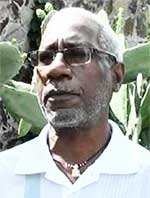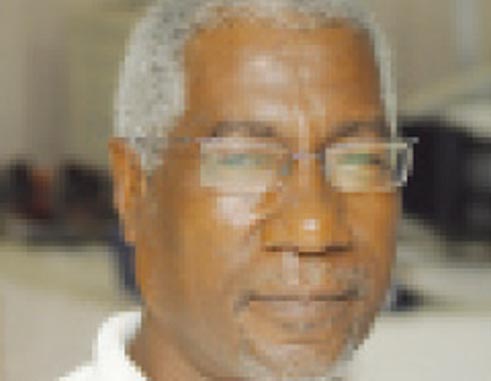
Venezuela’s hosting of 120 countries at last week’s meeting of the Movement of Non-Aligned Countries (better known as the Non-Aligned Movement) was also followed by its hosting this week of the Sao Paulo Forum, which also brought together another 120 Latin American and Caribbean social entities and political organizations from 25 countries to Caracas.
These two important global, hemispheric and regional organizations together represent the majority of the world’s developing countries and the wider region’s main state and non-state political and social entities committed to peace and development and respect for independence and sovereignty of all nations.
The Non-Aligned Movement (NAM) meeting – the second hosted by Venezuela in recent times – brought together representatives of 120 countries – a vast majority of member-states of the United Nations (UN) opposed to intervention in the internal affairs of Venezuela, as opposed to the 50 member-states that earlier this year supported the US-backed Opposition leader Juan Guaido.
The NAM nations again all reaffirmed their full support for a peaceful and non-interventionist approach to Venezuela and for solutions to be both home-grown and respected by all external actors.
Likewise, the Sao Paulo Forum, established in Brazil in 1990 under President Ignacio ‘Lula’ Da Silva, also joined the NAM in also showing and reaffirming the much-needed solidarity and support of Latin American and Caribbean people.
These two international events in Caracas surely helped reaffirm the support of the majority of the people of the world, which is already evidenced by the firm and guaranteed individual and collective support Venezuela already has from China and Russia, as well as the support of the vast majority of the UN’s member-states and developing countries.
Put alongside the quiet but very effective role played by the Norwegian Prime Minister through the Oslo talks that preceded the recent CARICOM Summit here and the meeting a week later that brought the opposing sides together in peace talks in Barbados, the NAM and Sao Paulo events should have also helped convince Doubting Thomases everywhere that the world’s people and governments prefer a peaceful end to the Venezuela crisis.
CARICOM’s role, as an entity, has also been positive, especially as the regional entity has been able to continue taking a collective position in support of a peaceful solution in Venezuela and opposition to disrespect for its independence and national sovereignty, or external military intervention in the country’s internal affairs.
But no one can deny that CARICOM is divided on Venezuela as a result of the direct intervention of Washington through the infamous private Mar-a-Lago meeting held by US President Donald Trump last March with five Caribbean leaders.
Four of the Caribbean Quintet also belong to CARICOM, but the US president selected to exclude from his invitation list any of the three leaders appointed to handle Venezuela matters on the regional grouping’s behalf.
The private Mar-a-Lago parley involved still-undisclosed discussions and unknown concordats, which continue to worry those CARICOM leaders on record as not supporting Washington’s interventionist approach and those unwilling to take any position (for or against) for fear of inviting retribution.
It is no secret either, that Saint Lucia is also a member of the Lima Group and its positions on Venezuela at the Organization of American States (OAS) have mainly supported Washington’s diplomatic and political agenda, which is primarily aimed at regime change in Caracas.
Over the next six months of his chairmanship of CARICOM, Prime Minister Allen Chastanet will continue to have the eyes of the nations and regions of the world fixed on his handling of the complex Venezuela situation, which has now elevated to a new and critical status by the failed US-backed April 30 military coup attempt and admittance by Guaido that his appointees embezzled funds raised earlier this year to be spent on the families of Venezuelan migrants and their families in Colombia.
Venezuela’s neighboring governments that have not yet done so are also now being (increasingly) forced to take a clear position on whether or not they support externally-generated regime change in Venezuela.
Following the Trump meeting, the five countries whose leaders he met (Bahamas, Dominican Republic, Haiti, Jamaica and Saint Lucia) all voted with Washington at the OAS on Venezuela; and with Saint Lucia in the chair at present, the four member-states seen as supporting the US position will also continue to attract close attention from near and far.
The Saint Lucia Prime Minister was seen here by many to have been at his prime diplomatic element during the pubic sessions of the July 3-5 CARICOM Summit he hosted in the presence of the UN Secretary General, the Norway Prime Minister and the Secretaries General of CARICOM, the OAS and the Association of Caribbean States (ACS).
Those top personalities discussed Venezuela here and agreed to the Barbados meeting – a quiet but decisive decision that again broke the ice and brought the two Venezuela sides out of the cold and into peace talks.
The Oslo and Barbados talks to try to get the two sides to eventually smoke the peace pipe have signaled clouds of hope, especially coming on the backs of continuing earlier initiatives like the Montevideo Mechanism (involving CARICOM Uruguay and Mexico) and the mediation efforts of the International Crisis Group (ICG) and the European Union (EU).
However, these peaceful initiatives naturally run in opposition to Washington’s crystal-clear interventionist position, which is being faithfully piloted through CARICOM and the OAS by the Lima Group, led by Canada.
It will therefore take not only all Prime Minister Chastanet’s accumulated diplomatic skills and experiences in chairmanship of multilateral and multinational meetings, but also his best skills at mediation and accommodation of opposing or differing positions, to ensure CARICOM’s ultimate positions on Venezuela, during his chairmanship, continues to collectively reflect that of the majority of member states – and hopefully without any (member-state) also deciding to adopt national policy decisions and actions that fly in the face of and ultimately weaken both the regional position and the level of global respect CARICOM will enjoy.
The Saint Lucia PM will over the next six months be like walking for all of almost 180 days non-stop along a tall and long tightrope over broken bottles and with a short pole, his journey’s ultimate end on the last day of this year depending entirely on his ability to survive the slips and slides that will surely come along the way.










